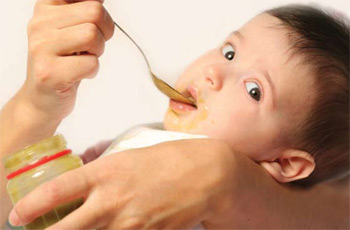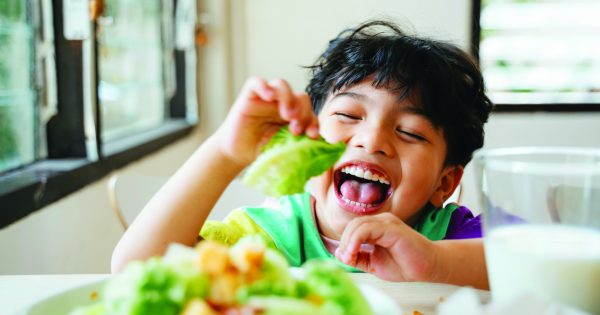Commercially prepared baby food is ready-to-eat food made especially for babies between 6 months and 2 years old. From juices to purees, and in a vast variety of tastes, colours and textures, commercially prepared baby food is designed to suit your baby’s early level of eating ability and experience. This may seem as the perfect solution for busy parents, but try not to overload your child with commercially prepared complementary food.
The Food Principle
Whether you opt to buy commercially prepared baby food or cook at home, the principle is variety. A good variety of food, the majority of which should still be fresh and home cooked, ensure that your baby gets all the necessary nutrients, vitamins and minerals he needs to grow and develop.
Did You Know?
Most of ready-to-eat baby food jars are categorised according to babies’ stage of development.
- Stage 1: For babies (6 months old) who are starting to consume solid foods. The texture is in puree form and usually consists of single food items, ie banana, mango, applesauce or squash only.
- Stage 2: For babies (7-9 months old) who have more experience in eating solid foods. It has thicker texture as the food is mashed and often contains two different types of ingredients like peach + mango, pear + avocado or carrot + potato.
- Stage 3: For babies (9 months old). The texture is thicker with diced or sliced food chunks. The food mostly includes a variety of ingredients such as meat, vegetables and fruits.
Read it Right
Many commercially produced baby food claim to have the full range of nutrients your baby needs. Whatever the claim is, do read everything on the label to have a clear understanding of what you are feeding your child. Here are some tips to help you along:
- Avoid products containing sugar, dextrose, sucrose or salt. Such additives, like salt, can damage your baby’s kidneys, as his kidneys are not matured enough.
- If water tops the ingredients list, it means a large part of the product is made up of water. Therefore, it is not as nutritious.
- Always check the expiry date, especially if buying at a discount.
- Check the storage instructions. After opening, commercially prepared baby foods can generally be stored for 24 hours in the fridge and kept in the freezer for up to a month, if not contaminated with baby’s saliva or leftover.
- See if additional information on minerals and vitamins is highlighted.
- If your baby has allergies, check for common food allergens like milk, eggs, fish, wheat, peanuts or soyabean.
Reminder!
Commercially prepared baby foods are often thickened with starch and this means less of other nutritious ingredients. They generally taste and have similar texture. Eating too much may deprive your baby of the chance to explore a wide variety of tastes, colours and textures. This may make him less receptive to what you serve later when he moves on to other solid foods.
Thus, try to limit commercially prepared complementary food only to times when convenience is important such as holiday travels. As a rule, it is best that fresh and nutritious home cooked foods should always make up the bulk of your baby’s diet!






Comments